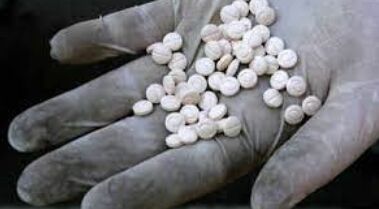Europe on High Alert: "Drug of Jihad" Captagon Threatens to Invade the Continent
Europe Braces for Arrival of Captagon Drug Amid Middle East Crackdowns. The potent drug, known as the drug of jihad or the poor man's cocaine, threatens to make its way into Europe, raising concerns for authorities and policymakers across the continent. Efforts to combat its trade involve diplomatic pressure, sanctions, and law enforcement.
Europe Braces for Arrival of Captagon Drug Amid Middle East Crackdowns Europe is on high alert as the potent drug Captagon, popularly known as the "drug of jihad" or the "poor man's cocaine," which has had a significant impact on the rave scenes in Gulf countries like Saudi Arabia, may now make its way into the region.
Captagon, a powerful amphetamine stimulant originally developed in Germany in the 1960s, is believed to be a mixture of fenethylline, caffeine, and other fillers, providing users with heightened focus, energy, and a sense of euphoria. The drug is relatively cheap compared to other illicit substances, with tablets selling for $3 to $25 each, hence its nickname "the poor man's cocaine."
Its affordability is attributed to the easy availability of raw materials and relatively simple production methods. Captagon is being produced in clandestine laboratories across the Middle East, particularly along the Syrian-Lebanese border and in small factories closer to Syria's frontier with Jordan.
Multiple sources, including intelligence agencies and government officials, have linked the Syrian government and its allies, such as Hezbollah, to the production and trafficking of Captagon. It was reported that Syria was a major producer and consumer of the drug, with even militant groups like the Islamic State using it to stay awake on the frontlines.
Reports indicate that Captagon is still being produced in small factories along the Syrian-Lebanese border, as well as larger ones closer to Syria's frontier with Jordan. Additionally, some quantities are produced in Lebanon. Recent shifts in the Middle East, including crackdowns in the Gulf and diplomatic developments, have prompted producers to seek new markets for Captagon, raising concerns about its potential influx into Europe.
Intelligence reports suggest that the flows of Captagon into Europe are likely to intensify, posing challenges for authorities and policymakers across the continent. Efforts to combat the trade of Captagon involve a mix of diplomatic pressure, sanctions, and law enforcement.
Countries like the United States and the European Union have introduced measures to disrupt production and trafficking networks, with specific focus on individuals and groups tied to the Syrian government and Hezbollah. In addition, efforts are being made to question the involvement of key figures, such as Maher al-Assad, the head of the Syrian army's Fourth Division and the president's brother.
European officials have expressed concern about the potential threat of Captagon entering the continent. Although the drug has not yet become a major problem in Europe, intelligence reports suggest that its flows are likely to increase. Authorities are particularly concerned about European countries both at the periphery and in the center and north, where there have been numerous raids on Captagon warehouses.
The expanding scope of the drug trade is alarming the United States as well, with lawmakers introducing new sanctions against Syrian President Bashar al-Assad, who is accused of being involved in captagon production.
Various factors contribute to the potential increase in Captagon's presence in Europe, including political shifts in the Gulf, efforts to reengage with Assad, and the desire for cash in war-torn Syria. As narcotics are trafficked through new routes, there are concerns about intermediaries being paid in kind with the drug itself, leading to potential spillover into the local market.
Europe must remain vigilant in addressing the threat of Captagon and its potential impact on society, as it has already had devastating consequences in countries like Saudi Arabia.




